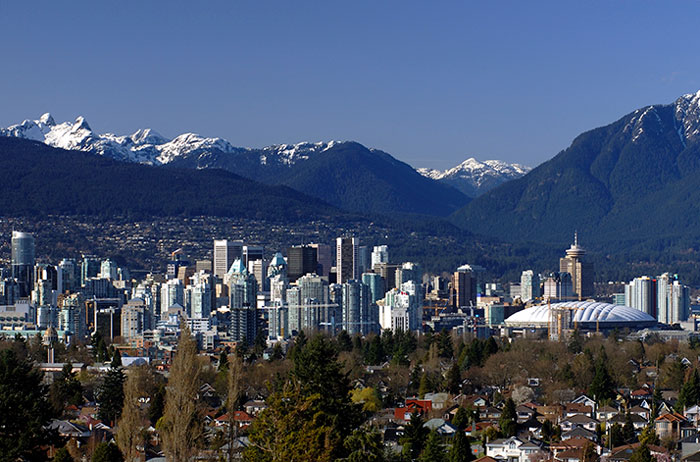 British Columbia's postsecondary education system has expanded significantly since its beginnings early in the 20th century. The University of British Columbia (UBC), officially incorporated in 1908, operated as the province's only public university until 1963. That year, the Province passed legislation to establish Simon Fraser University (SFU), which opened in 1965. The University of Victoria (UVic) was founded in 1903 as Victoria College, an affiliate of McGill University in Montreal. The University received degree-granting status and moved to its Gordon Head campus in 1963.
British Columbia's postsecondary education system has expanded significantly since its beginnings early in the 20th century. The University of British Columbia (UBC), officially incorporated in 1908, operated as the province's only public university until 1963. That year, the Province passed legislation to establish Simon Fraser University (SFU), which opened in 1965. The University of Victoria (UVic) was founded in 1903 as Victoria College, an affiliate of McGill University in Montreal. The University received degree-granting status and moved to its Gordon Head campus in 1963.
During the past 40 years, the system has seen further developments to increase access to postsecondary education. The British Columbia Institute of Technology (BCIT) was founded in 1964. Later, community colleges were established throughout the province. In 1978, the Open Learning Institute, the Justice Institute, and the Emily Carr Institute of Art and Design (ECIAD) were established. To increase access to postsecondary education, the province established the University of Northern British Columbia (UNBC), which opened in 1994, and Royal Roads University (RRU), which opened its doors in 1996. In 1995, an Aboriginal education institute - the Nicola Valley Institute of Technology - was designated as a public postsecondary institution.
In 1995, the government enabled university colleges, BCIT and ECIAD, to grant undergraduate degrees. In 2003, public colleges were allowed to offer baccalaureate degrees with an applied focus, and university colleges (now known as teaching intensive universities) and provincial institutes to offer master's degrees with an applied focus.
In 2002, BCcampus was established with a mandate to provide British Columbia learners with a web-based access point to online learning programs and student support services. It has created a suite of tools and services to enhance the online learning offerings of British Columbia's 25 public post-secondary institutions. BCcampus also supports collaborative approaches to distance education, making education available to all students, particularly for those in rural and remote communities and those in urban communities whose schedules demand more flexible learning opportunities. In addition, it is responsible for developing open textbooks in the 40 most highly enrolled first and second year courses.
 In March 2004, government announced that it would dissolve Okanagan University College to establish a new institution in the region - Okanagan College (OC) - as well as a new university campus - University of British Columbian Okanagan (UBCO) - with the first students entering UBCO and OC in September 2005.
In March 2004, government announced that it would dissolve Okanagan University College to establish a new institution in the region - Okanagan College (OC) - as well as a new university campus - University of British Columbian Okanagan (UBCO) - with the first students entering UBCO and OC in September 2005.
In March 2005, government created a new university in Kamloops - Thompson Rivers University (TRU) - to succeed the University College of the Cariboo. TRU assumed responsibility for the provincial open and distance learning mandate of the British Columbia Open University and the Open College, formerly part of the Open Learning Agency.
The three remaining university colleges, Capilano College and Emily Carr Institute of Art and Design were established as teaching-intensive universities in 2008.
BC now has the following public post-secondary structure:
- Research-intensive universities — Simon Fraser University, University of British Columbia, University of Northern British Columbia, and University of Victoria
- Teaching-intensive universities — Capilano University, Emily Carr University of Art and Design, Kwantlen Polytechnic University, Royal Roads University, Thompson Rivers University, University of the Fraser Valley and Vancouver Island University
- Colleges — Camosun College, College of New Caledonia, College of the Rockies, Douglas College, Langara College, Okanagan College, North Island College, Northern Lights College, Coast Mountain College, Selkirk College, and Vancouver Community College
- Institutes — British Columbia Institute of Technology, Justice Institute of British Columbia, and Nicola Valley Institute of Technology